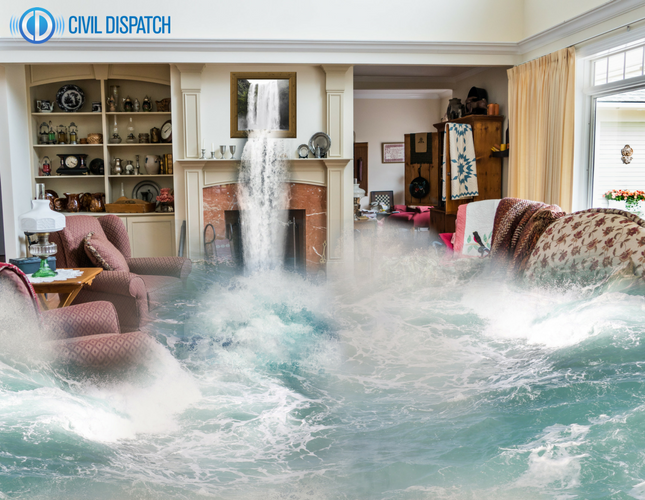
As we are in the midst of spring and summer and for some of us we are about to enter hurricane season, flooding is a common occurrence and can in fact happen without warning. Flooding can occur in many places, so everyone should be prepared and have a plan.
Here are some basic safety tips for when flooding occurs:
- Turn around! Don’t attempt to make your way through a flood area.
- Just 6 inches of moving water can inhibit your ability to make your way through water and just 1 foot of water can sweep your vehicle away.
- If there is any chance of flash flooding, you should move to higher ground immediately. Floods are actually the #1 cause of weather-related deaths.
- If the water that has already surrounded your car is not moving, you should abandon your car and move to higher ground. Do not move towards moving water.
- If there is heavy rainfall or the potential of heavy rainfall, avoid camping or parking near streams or rivers.
Terms to know about floods and steps to take:
Flood Watch = “Be Aware.” The conditions in your area are right for flooding to occur.
- Turn on your TV/radio to get frequent weather updates.
- Have a plan to reach higher ground if you need to.
- Make sure you have an emergency kit including flashlights, batteries, cash, and first aid supplies.
- Tips to help you prepare your home:
- Bring in any outdoor furniture and move any important items in your house up to a higher floor.
- Disconnect any electrical appliances and don’t touch it if it might be wet.
Flood Warning = “Take Action!” Flooding is already happening or will happen soon.
- Move immediately to higher ground
- Evacuate if you are directed.
- Avoid walking or driving through flood waters.
- Don’t return to your home until authorities say it’s safe.
- Beware of roads and walkways after water has receded. Flood waters can erode roads.
- Avoid standing water.
- Photograph damage of your property for insurance purposes.
If you are looking for more information about getting prepared for natural disasters, check out these other Civil Dispatch blog posts:
- Pack Your Belongings & Pack Your Patience
- Preparednes Takes The Fear Out Of Disasters
- Your Family's Disaster Preparedness Plan